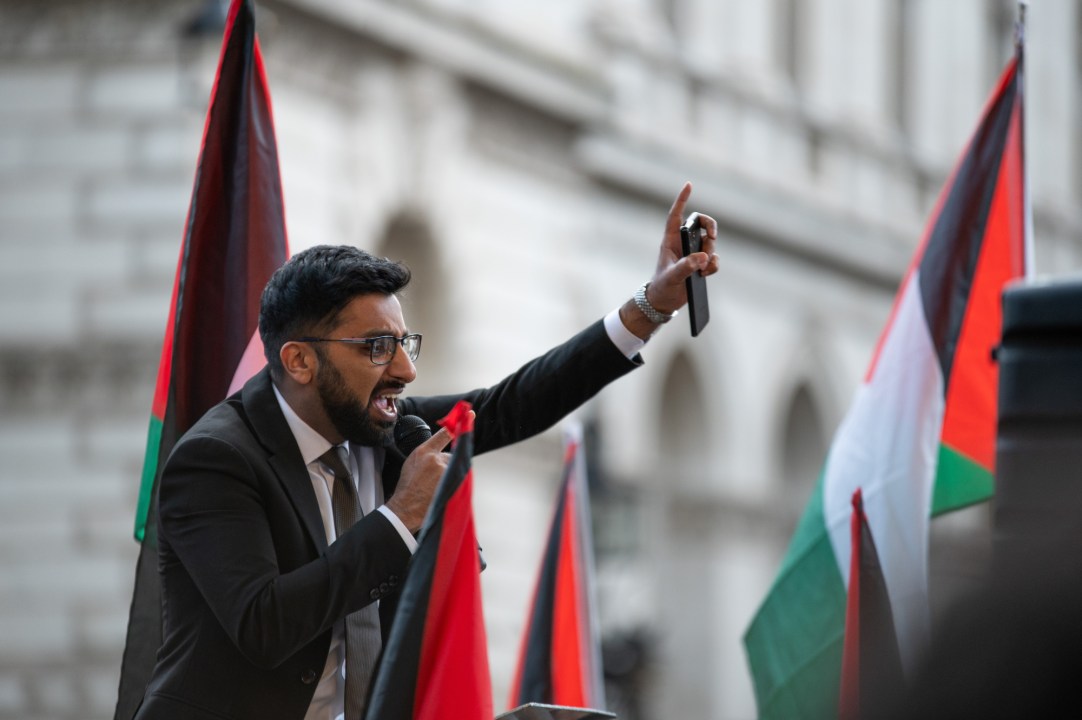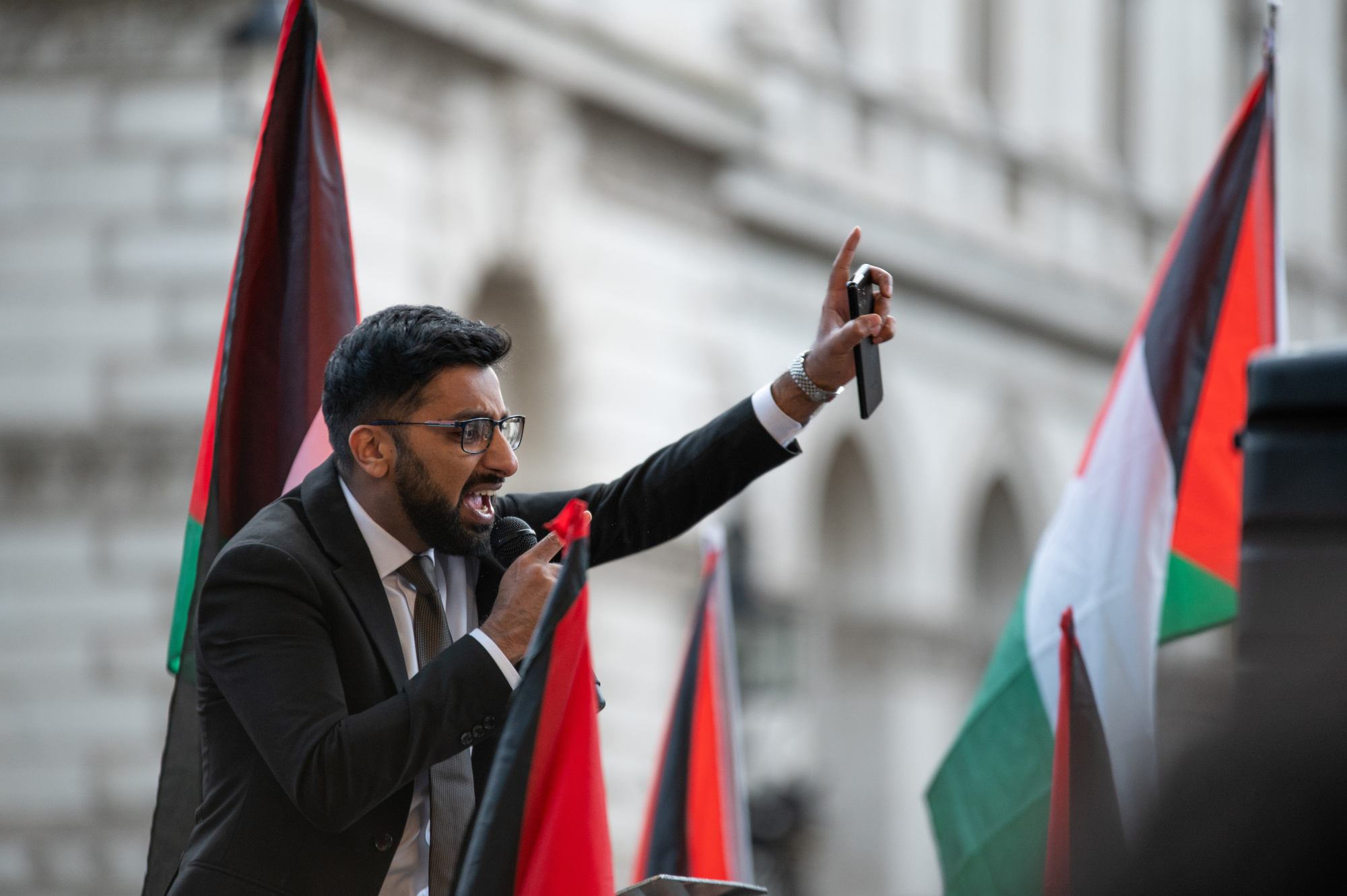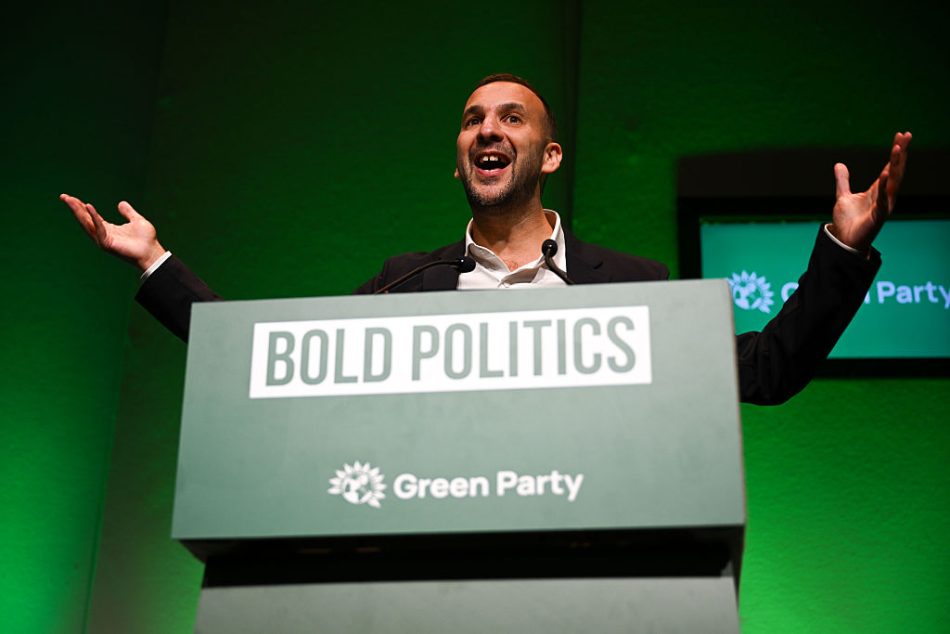When Blackburn MP Adnan Hussain complains about an opponent believing ‘free speech means protecting the right to offend Muslims’, you feel an instinctive response gathering in your throat. You’re damn right it does. It means the right to burn the Qur’an, mock the Hadith and doodle cartoons of the Prophet Mohammed performing in a rainbow-flag hijab on RuPaul’s Drag Race. In a liberal society, people should be free to blaspheme against any and all religions, even pretendy ones like Anglicanism.
Mass immigration plus non-integration have allowed enclaves of reaction to sprout up in Britain. In these parallel states, some migrants and subsequent generations live as paper citizens but do not subscribe to the cultural assumptions that have come to undergird British national life
You should be free to tell Catholics they’ve built an entire church around one woman’s genius excuse for getting knocked up by someone other than her husband. Free to tell Jews that when a solicitor gives you the title deed to a piece of land it’s called conveyancing but when a voice in the sky does it it’s called schizophrenia. Free to take the mick out of whoever it is that worships that broad with all the arms. (Imagine her manicure bills.)
Few things unite secular leftists, right-wing Tories, liberal proceduralists and Anglo-futurists like a Muslim seemingly questioning the permissibility of blasphemy. Progressives who ackshually away appeals to British values at any other time now proffer them as principles fundamental and inviolable. Reactionaries who ordinarily decry the coarsening effect of crudity and profanity jostle to devise the most obscene insults against Islam. Freedom of expression, all sides agree, is too intrinsic to Britain’s national story to surrender it to men like Adnan Hussain.
But is it intrinsic? It’s impossible to divorce the history of England from the liberty of the person, which has expanded at times and contracted at others but where the rough trajectory has been towards greater licence for the expression of individual conscience, especially on the subject of religion. However, a nation is an ongoing conversation between the past and the present, and England in the present is a country in which the freedom to blaspheme against one particular religion is coming under increasing challenge.
Hussain later clarified his remarks, claiming that he wasn’t objecting to the legality of offending religion, merely accusing the former Reform MP Rupert Lowe of a disproportionate focus on Islam. But free speech means you get to offend Muslims disproportionately or even exclusively if you so wish. There is no equality duty when it comes to heresy and, bluntly, if you mean to take aim at the speech-chilling power of intolerant religious crybullies, there is a pretty obvious candidate. It’s about time someone put the Methodists in their place.
Whatever his intended point, Hussain would hardly be a lone voice for restricting freedom of expression when it comes to Islam. Labour MP Tahir Ali has called for laws to ‘prohibit the desecration of all religious texts and the prophets of the Abrahamic religions’. Fifty-two per cent of Muslims in Britain would like to see it become a crime to show a picture of the Prophet Mohammed. Prohibitions on blasphemy were officially removed from the statute books in England and Wales in 2008 but continue on a de facto basis for those who scandalise Islam or its adherents.
A man who burned his own copy of the Qur’an outside the Turkish embassy in London was charged with ‘intent to cause against the religious institution of Islam, harassment, alarm or distress’. There is no law on the statute books of England that makes it a crime to harass an entire religion, but the Crown Prosecution Service was satisfied to proceed all the same. Only after an outcry did it quietly drop the invented charge and replace it with one of causing ‘harassment, alarm or distress… motivated by hostility towards a religious or racial group’.
The police swoop in when a Qur’an is burned, but they are noticeably less forceful in suppressing intimidation of those accused of insulting Islam. After a religious studies teacher at Batley Grammar School showed pupils an illustration of the Prophet Mohammed during a 2021 lesson, crowds of Muslims protested outside the school gates and the teacher was bombarded with threats online. He was forced to go into hiding where he remains four years later. As far as the Khan review could establish, not a single arrest was made over the campaign of harassment against the teacher.
Officers were similarly reluctant to get the cuffs out when throngs of Muslim men gathered outside British cinemas in 2022 demanding they pull screenings of the ‘blasphemous’ film, The Lady of Heaven. One cinema chain after another dropped the movie, wisely so given the apparent reluctance of the rozzers to protect them or their patrons.
The following year the Old Bill got more involved when a 14-year-old autistic boy at Kettlethorpe High School in Wakefield dropped and scuffed a copy of the Qur’an as part of a prank. West Yorkshire Police recorded it as a ‘non-crime hate incident’ and dispatched a senior officer to the local mosque to criticise the boy’s ‘lack of understanding’ and give the imam his ‘really, really deep-hearted thanks… in regards to the tolerance and understanding shown’. Said officer remained there and watched as the boy’s mother — sporting a veil, naturally — pleaded her son’s case. When it comes to Islam and intimidation, police can’t decide whether to be hands-on or hands-off. (You’d have thought sharia-compliant policing would come down firmly on the side of hands-off.)
Liberals, of which I am one, are currently in denial about two-tier policing but even when the weight of evidence makes denial no longer possible, it will not be as easy as calling for legislative or policy changes to right the problem. We will have to do something much more daunting: confront the tension between liberalism and multiculturalism. No, not ‘tension’. I used to say ‘tension’ back when I believed the two could coexist in one country. I was wrong, idealistically wrong — the worst kind of wrong. The word I’m looking for is incompatibility. English liberalism and multiculturalism cannot be reconciled and the continued attempt to do so only delays the time of choosing.
Mass immigration plus non-integration have allowed enclaves of reaction to sprout up in Britain. In these parallel states, some migrants and subsequent generations live as paper citizens — voting, paying tax, collecting benefits, sitting on juries, and using public services — but do not subscribe to the cultural assumptions that have come to undergird British national life, including the rule of law, tolerance, religious pluralism and freedom of expression.
By no means does this describe all migrants or all Muslims, but it describes more than we should be comfortable with. Nor does the fault lie primarily with those who come here. Uncontrolled immigration is not their policy, they only benefit from it. It’s not their fault they’ve never been told there is a distinct and virtuous British culture to which they must acclimatise if they wish to live here. It’s not their fault that the UK state addresses them as a community with sectional interests rather than as citizens with shared obligations.
That is the doing of a governing class that prioritises the group over the nation, the universal over the particular, the legal over the political, and the modern over the traditional. Post-national managerialists committed to the celebration of every culture but their own. Their compassion heatmap is so far off in the distance it is barely visible. There can be no progress until this destructive and demoralising elite is replaced and with them their failed gods.
The crisis in British multiculturalism is a crisis of identity and philosophy, one not created but merely exposed by mass immigration. It is easy to pinpoint the flaws in our multiculture but much harder to say what our monoculture would look like. What is lacking is a British civic religion. America is about life, liberty and the pursuit of happiness. Australia is about mateship and the fair go. Canada is about peace, order and good government. What is Britain about? What are our common bonds?
A country which has ceased to be conversant in its own culture cannot hope to manage the level of multiculturalism brought by seemingly limitless immigration. If we define Britishness along civic lines — and I believe we must — then everyone born here or who makes this their home has a say in articulating our civic religion. The greater the volume of immigration the more susceptible that civic religion will be to challenges from those who bring with them different cultural assumptions, be that about blasphemy and free expression, sexual equality and gay rights, or ethnic prejudices and religious sectarianism.
Britain is a multiracial and multifaith success story, but it is a multicultural morass, because while individuals of all nationalities, ethnicities and religious affiliations can integrate into British life, insular and adversarial cultures cannot. Individuals and families may observe traditions, customs, festivals and practices foreign to the UK, they may express special affinity for ancestral lands, but they cannot live in cloistered cultures sealed off from the rest of British life and hostile to many of its precepts. Becoming British need not mean losing your cultural heritage but it must mean your cultural heritage being integrated into your primary identity as a Briton. That can only happen with government policies that compel integration, discourage sectionalism and control migration numbers to make this process manageable. Keir Starmer is beginning to speak in these terms but it is actions that count.
Diversity can be a strength but it can also weaken cohesion and consensus. Those who would prohibit offence to Islam don’t need to get a majority of Britons to agree with them. They just need to get a big enough minority to make their view unignorable so that liberty is no longer inseparable from British identity and becomes one of several competing perspectives, all worthy of consideration in the making of law and policy. The British state already sides with its enemies as a matter of habit, it hardly needs any more encouragement.
Free speech does and should protect the right to offend Muslims and every other religious or ideological category. Multiculturalism and mass immigration are not the only threats to a civic religion rooted in individual liberty but they embolden those with no apparent sympathy for Britain’s tradition of free expression. Forced to choose between a liberal order and a multicultural one, as increasingly we are, no British person would fail to choose the former.









Comments